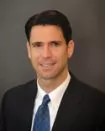Delaware Business Court Insider
The Delaware Chancery Court recently issued an important opinion impacting corporate governance and mergers and acquisitions practice, and posted guidelines intended to "remind all counsel" of their duty to preserve electronically stored information. In the Delaware Bankruptcy Court, Chief Judge Kevin Carey defined the contours of the "common interest privilege" in the highly contested Tribune cases. The recent Universal Building Products opinion on committee solicitation continued to reverberate.
Poison Pill Upheld
On March 3, the Delaware Supreme Court affirmed a Chancery Court decision that upheld the adoption of a "poison pill" by the board of directors of Barnes & Noble as a "good faith, reasonable response to a threat to Barnes & Noble and its shareholders."
The Supreme Court issued a one-page order affirming Vice Chancellor Leo E. Strine's opinion in Yucaipa American Alliance Fund II, L.P. v. Riggio, C.A. No. 5465-VCS (Del. Ch. Aug. 12, 2010). In Yucaipa, the vice chancellor held that the board adoption of a 20 percent threshold shareholders rights plan that grandfathered the company's founder was a proportional response to investor Ron Burkle doubling his interest in Barnes & Noble to 18 percent in four days. The rights plan prevented a shareholder or coordinated group of shareholders from acquiring more than 20 percent of the company's stock, but exempted company founder Stephen Riggio and certain family members who owned about 30 percent of the company. The rights plan did prevent Riggio and family from increasing their holdings.
The court rejected arguments from the plaintiff that the entire fairness standard should apply to the board action since Riggio stood on both sides of the transaction. The court determined that five of nine directors were independent and that the Riggio family did not receive any special benefit since, among other things, they could not increase their stock holdings. Thus, the business judgment rule applied, and the defensive action was judged under the proportional response test of Unocal. The court rejected use of the Blasius standard, finding that shareholders were not disenfranchised.
Electronically Stored Information
The Chancery Court recently posted guidelines intended to "remind all counsel (including Delaware counsel) appearing in any case before this court of their common law duty to their clients and the court, with respect to the preservation of electronically stored information ('ESI') in litigation."
The guidelines counsel that "at the very minimum" attorneys should work with their clients to develop and oversee a preservation process that includes issuing a proper "hold notice." The guidelines stress the importance of "counsel oversight" and state that the sufficiency of the process will be determined on a case-by-case basis.
The guidelines specifically advise counsel in working with clients to:
- Take a collaborative approach to the identification, location and preservation of potentially relevant ESI by specifically including in the discussion regarding the preservation processes an appropriate representative from the party's information technology function (if applicable);
- Develop written instructions for the preservation of ESI and distribute those instructions (as well as any updated, amended or modified instructions) in the form of a litigation hold notice to the custodians of potentially relevant ESI; and
- Document the steps taken to prevent the destruction of potentially relevant ESI.
Potential locations of ESI that may require special attention include, but are not limited to, "business laptop computers, home computers (desktops and laptops), external or portable storage devices such as USB flash drives (also known as "thumb drives or key drives") and personal e-mail accounts."
The guidelines further remind counsel that the duty to preserve ESI arises upon the earlier to occur of litigation being (1) initiated or (2) reasonably anticipated. According to the guidelines, in a case where ESI is lost, a preservation process may not be sufficient to avoid sanctions, but the court will consider good-faith preservation efforts.
Common Interest Privilege
As cases which were filed during the current recession progress towards confirmation, the Delaware bankruptcy courts have had to decide a multitude of issues which arise in contested confirmation hearings. In In Re Tribune, Case No. 08-13141 (Del. Bankr. Feb. 3, 2011), Carey decided a discovery dispute between proponents of competing plans, which required an analysis of the "common interest" privilege.
In Tribune, several parties proposed plans. Carey appointed his colleague, Judge Kevin Gross, to conduct non-binding plan mediation. Ultimately, Gross filed a mediation report that included a term sheet for a plan of reorganization (the "debtor plan") proposed by the debtors, the official committee of unsecured and a pre petition lender, which faced potential liability for claims (the "LBO claims") arising from a leveraged buy-out. A group of noteholders filed a competing plan.
To probe the good faith and arms-length nature of plan settlement negotiations, the noteholders sought discovery of communications relating to the settlement of the LBO claims in the context of plan negotiations. The proponents of the debtor plan objected on the grounds that these communications were protected by, among other things, the common interest privilege.
Carey noted that, although the interests of the proponents of the debtor plan were not in complete accord (e.g., the lender would want to contribute as little as necessary to the plan, while the debtor and committee would want to maximize the estate's assets), the common interest privilege requires a "community of interests" not a unity of interests. The community of interests did not arise until the proponents filed their plan term sheet.
Carey noted that the common interest privilege only applies to communications which are otherwise protected by the attorney-client privilege or work product doctrine. However, the doctrine's protections are not limited to lawyer to lawyer communications. Client-to-client communications may be protected, "so long as the communication at issue would be protected by the attorney-client or work product privilege but for its disclosure to a party with a common interest."
As a case progresses to confirmation, apparent adversaries become allies as they compromise claims and seek consensus. An inquiry into "good faith" is always permitted in the context of confirmation or the estate's compromise of claims. Carey's decision in Tribune, together with Judge Christopher Sontchi's decision in In re Leslie Controls Inc., 437 B.R. 493, 496-98 (D. Del. 2010)(holding that the common interest privilege protected certain communications among the debtors and certain committees of asbestos claimants who had a common interest in maximizing the availability of insurance to pay asbestos claims), provide some guidance as to the application of the common interest privilege to communications among plan proponents.
Universal Building Products
At the end of 2010, Judge Mary F. Walrath rendered a decision in In re Universal Building Products, in which she identified the limits on collaboration among lawyers and nonlawyers in the context of soliciting the support of potential creditor committee members for selection as committee counsel. The Rules of Professional Conduct prohibit lawyers from direct solicitation of clients with whom the lawyer does not previously have a relationship. Nonlawyers generally do not face such a prohibition. Prior to the date when a committee is formed, lawyers and non lawyers frequently exchange information and introductions. In Universal Building Products, Walrath held that lawyers may not use nonlawyers as their agents in contacting creditors directly and in obtaining proxies to vote for the selection of committee professionals.
Since the decision, professionals seem to be more conservative in seeking creditor support and in exchanging introductions. The Office of the United States Trustee's committee questionnaire does not ask potential committee members whether they have been solicited. However, at committee formation meetings, potential members of committees are asked to identify any professionals who have contacted them in anticipation of the meeting. The use of creditor proxies is under greater scrutiny.
This article is for general information and does not include full legal analysis of the matters presented. It should not be construed or relied upon as legal advice or legal opinion on any specific facts or circumstances. The description of the results of any specific case or transaction contained herein does not mean or suggest that similar results can or could be obtained in any other matter. Each legal matter should be considered to be unique and subject to varying results. The invitation to contact the authors or attorneys in our firm is not a solicitation to provide professional services and should not be construed as a statement as to any availability to perform legal services in any jurisdiction in which such attorney is not permitted to practice.
Duane Morris LLP, a full-service law firm with more than 700 attorneys in 24 offices in the United States and internationally, offers innovative solutions to the legal and business challenges presented by today's evolving global markets. Duane Morris LLP, a full-service law firm with more than 700 attorneys in 24 offices in the United States and internationally, offers innovative solutions to the legal and business challenges presented by today's evolving global markets. The Duane Morris Institute provides training workshops for HR professionals, in-house counsel, benefits administrators and senior managers.


